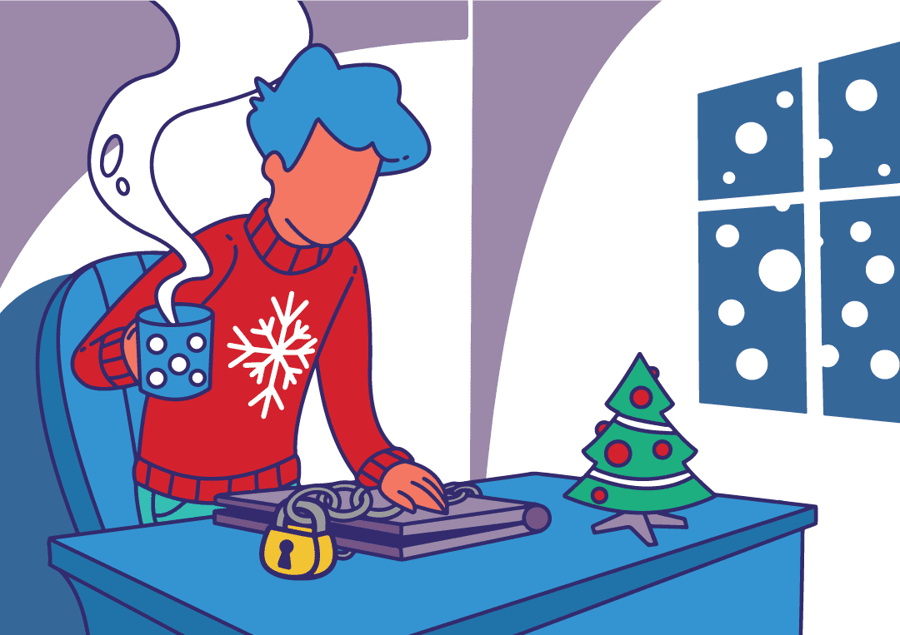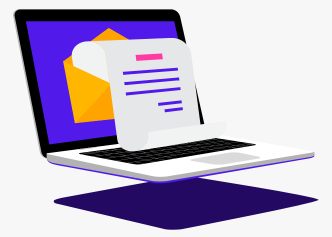SECTION
Improve Performance by Disconnecting Better (over the Holidays) - 7 Reasons and 7 Tips

Listen to this article:
Disconnecting used to seem like an easier task back when we were able to separate our professional lives from our personal ones. Our work mainly took place at the office, and our homes were our havens, almost exclusively dedicated to more fun and relaxing activities or to precious family time.
Unplugging becomes harder to achieve as the two occur in the same location, and our minds never get the opportunity to properly disconnect. As you may have guessed, this can negatively affect our work performance because we never give our minds the break they need to function at their true potential.
But all this needs to change. This holiday season, we challenge you to take time off that you truly deserve.
First, we’ll dig deeper into the science behind the importance of properly unwinding. Then we’ll share 7 of our tried and tested tips for relaxing more efficiently during the holidays.
Don’t forget to have fun while “implementing” our advice. Rewards as increased productivity, job satisfaction, performance, and creativity will soon follow.
The science behind our need to relax - 7 reasons
In theory, we all know the benefits of a healthy work-life balance. Yet, according to a GFI Software report, judging solely by the email habits of survey respondents, the line between work and home life has become blurred.
More than three-quarters of respondents (81%) said they check their work email on weekends, 55% check email after 11 p.m., and 59% keep on top of their work email while on vacation.
So, without further ado, here’s why you need to detach starting this holiday season:
- According to a study published in the journal “Industrial Health,” mentally detaching from work has beneficial psychological effects. The results showed that even moderate detachment can lead to improved mental health. "Although high psychological detachment may enhance employee mental health, moderate levels of psychological detachment are most beneficial for work engagement," the study concluded.
- When an employee doesn’t take time off, it costs the company more if that person actually took a vacation. According to the American Psychological Association, job-related stress may cost American businesses a staggering USD 383 billion annually through illness-related absenteeism and reduced productivity.
- Every vacation hour counts when it comes to productivity. According to an internal study developed by Ernst & Young, for each additional 10 hours of vacation, employees took their year-end performance ratings from supervisors improved by 8 percent. Frequent vacationers were also significantly less likely to leave the firm.
- There’s a lot of focus on creativity at the workplace these days. Going outside our work routines and enjoying time off by doing new things can push our creative boundaries and make us more prone to innovate at our jobs, according to a study in social psychology.
- Work stress can negatively impact our relationships. Studies have shown that individuals who experience stress at work become more anxious in their relationships and risk distancing themselves from their partners. These imbalances in personal life may lead to poorer performance at work, as one would expect.
- Health is greatly affected by overworking our bodies. From eye problems to heart conditions, stress is the main culprit for some of the most common illnesses nowadays. Let’s also not forget about the well-known issues brought by sedentarism, caused by sitting for too long at our offices. A twelve-year study by The Women’s Health Initiative showed a reduced lifespan in women who spent too much on their chairs at work.
- Last but not least, take into consideration that vacationing once in a blue moon is far from enough. Studies have proven that the benefits of a vacation can fade in two to four weeks. So remember to relax as often as possible - during evenings and weekends too.
Our 7 tips for unwinding during the holidays
Now that we’ve established why you need to do it, it’s time to reveal our tried and tested tips and tricks for learning how to relax like a pro during the holidays.
1. Plan your vacation time and start unwinding gradually.
It would be extremely hard to work on multiple stressful projects at once and then to leave abruptly on holiday.
So start this process a few weeks ahead by establishing your most important projects that need to be finalized before leaving.
Make sure to leave as much as you can in order, so as not to overload other colleagues.
Also, don’t forget to email managers with project statuses and set up an explanatory out-of-office message with clear instructions for different situations, should they be needed. This will guarantee extra peace of mind over the holidays.
2. Set realistic expectations concerning your holiday.
This means that you might have to check your email every once in a while, but that shouldn’t stop you from unwinding.
In the end, it all comes down to the mindset that you decide to create for yourself. If you have an urgent task that requires your attention, then decide on a time you wish to touch base daily with your colleagues and try to stick to that commitment.
If you are going to be in a remote location or wish to completely disconnect from work-related aspects, then delegate this to someone you trust while you are away.
But by all means, it’s very important to consider all these aspects before leaving, so that all this relaxation time is not in vain and you do not have to face complete chaos upon returning from vacation.
3. Establish a clear definition of what emergency means.
Communication is key in most work aspects, and going on leave is no exception. People respond well to boundaries, as long as you set them correctly and within reason.
If you decide to leave your phone number for emergencies, it will show that you care about your work and wish to attain the best possible results.
Most colleagues won’t call you because they wouldn’t want to be bothered in their time off.
However, to ensure that people will not take your openness for granted, specify the exact situations in which you should be reached - for instance, if the client refuses the third batch of changes, refuses to pay, etc.
4. Announce clients, colleagues and partners of your vacation.
Set up ground rules. Give details if needed and involve people in your plans - as mentioned above, the more informed they are, the more people will feel the need to “guard” your vacation plans.
If you tell colleagues that you need this time to connect better with your family or go skiing in some remote location, people will respect your transparency and defend you. In case others may feel the need to comment against your decision to take a vacation at such a busy time of the year.
5. Turn off notifications - email, chat, phone and other work-related channels.
If necessary, decide on a specific time daily when you are “allowed” to check these. Stick to just one electronic device and lock away the ones you are not using.
Yes, physically lock them away. Make it difficult for the “future” you to fall into temptation and obsessively check work channels when you should be taking care of yourself.
6. Set up ground rules with friends and family.
Tell them you might need to take one or two work calls on a specific day or check emails. Communication is the best solution in personal matters too, not just professional ones.
People like to know what to expect, will appreciate honesty, and won’t feel like you are trying to avoid them purposely. Stick to that plan and be as present as possible during your “off” time.
There is no point in occupying your mind with work matters uselessly, overthinking things will not help in any way.
7. Carefully plan out your return to work.
Don’t overbook your agenda during the first week back at the job, you will need a few days just to catch up with everything.
Make sure to take that into account in advance and allow yourself the necessary time for going through your email inbox, coming up with well-informed replies, and getting up-to-date with project statuses.
Overtiring yourself in the first week of work will too quickly wear you out and wipe out all the beneficial effects of your vacation.
End 2020 with a bang: work hard, play even harder!
Our proposition to relax more would look great on your resolution list for 2021, but what if you got a bit of a head start? End this atypical year on a fun note and challenge yourself to a more balanced new year.
The gist of it all is simply learning to be more present. Are you at work? Be there 100%. Are you spending some time off? Then dedicate yourself body and soul to this mission of supreme relaxation.
Give this mission the importance you would give to a work task. Fill your “me” time with many activities to spur your creativity. Or do nothing at all, it’s your call. But do it well and without a guilty conscience. Because, after all, you do it to improve your work performance, too.





